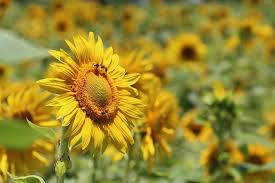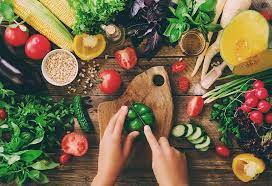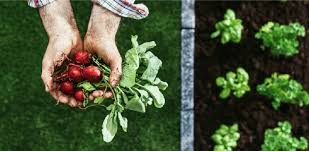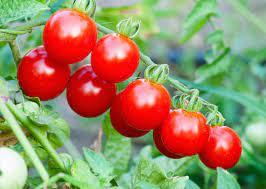Uncategorized
OGANIC CERTIFICATION
The EU-organic production-regulation is a part of the European Union regulation that sets rules about the production of organic agricultural products and how to label them. In the EU, organic farming and organic food are more commonly known as ecological or biological.
The regulation is derived from the guidelines of the International Federation of Organic Agriculture Movements (IFOAM), which is an association of about 800 member organizations in 119 countries
.

Organic food logo
EU certified organic food logo
In July 2010, a new logo for the organic certification label was chosen to replace the earlier national labels for usage of organic food that meet the criteria of the EU Eco regulation. The regulation also states that the term biological or ecological may be used on products in the EU if the product consists of at least 95% ingredients from EU regulated organic food.
Greece
In Greece, organic certification is available from eight organizations approved by EU. Most of them are BIOHELLAS and the DIO (Greek: Οργανισμός Ελέγχου και Πιστοποίησης Βιολογικών Προϊόντων – ΔΗΩ)
Ireland
In Ireland, organic certification is available from the Irish Organic Farmers and Growers Association, Demeter Standards Ltd. and Organic Trust Ltd.
Switzerland
In Switzerland, products sold as organic must comply at a minimum with the Swiss organic regulation (Regulation 910.18).Higher standards are required before a product can be labelled with the Bio Suisse label.
Sweden
In Sweden, organic certification is handled by the organisation KRAV with members such as farmers, processors, trade and also consumer, environmental and animal welfare interests.

United Kingdom
In the United Kingdom, organic certification is handled by a number of organizations, regulated by The Department for Environment, Food and Rural Affairs (DEFRA), of which the largest are the Soil Association and Organic Farmers and Growers. While UK certification bodies are required to meet the EU minimum organic standards for all member states; they may choose to certify to standards that exceed the minimums, as is the case with the Soil Association.
The farmland converted to produce certified organic food has seen a significant evolution in the EU15 countries, rising from 1.8% in 1998 to 4.1% in 2005. For the current EU25 countries however the statistics report an overall percentage of just 1.5% as of 2005. However, the statistics showed a larger turnover of organic food in some countries, reaching 10% in France and 14% in Germany. In France 21% of available vegetables, fruits, milk and eggs were certified as organic. Numbers for 2010 show that 5.4% of German farmland has been converted to produce certified organic food, as has 10.4% of Swiss farmland and 11.7% of Austrian farmland.Non-EU countries have widely adopted the European certification regulations for organic food, to increase export to EU countries.
Asia and Oceania
Australia
In Australia, organic certification is performed by several organisations that are accredited by the Biosecurity section of the Department of Agriculture (Australia), formerly the Australian Quarantine and Inspection Service, under the National Standard for Organic and Biodynamic Produce. All claims about the organic status of products sold in Australia are covered under the Competition and Consumer Act 2010.
In Australia, the Organic Federation of Australia is the peak body for the organic industry in Australia and is part of the government’s Organic Consultative Committee Legislative Working Group that sets organic standards.
Department of Agriculture accreditation is a legal requirement for all organic products exported from Australia. Export Control (Organic Produce Certification) Orders are used by the Department to assess organic certifying bodies and recognise them as approved certifying organisations. Approved certifying organisations are assessed by the Department for both initial recognition and on an at least annual basis thereafter to verify compliance.
In the absence of domestic regulation, DOA accreditation also serves as a ‘de facto’ benchmark for certified product sold on the domestic market. Despite its size and growing share of the economy “the organic industry in Australia remains largely self-governed. There is no specific legislation for domestic organic food standardisation and labelling at the state or federal level as there is in the USA and the EU.
Australian approved certifying organisations
The Department has several approved certifying organisations that manage the certification process of organic and bio-dynamic operators in Australia. These certifying organisations perform a number of functions on the Department’s behalf
- Assess organic and bio-dynamic operators to determine compliance to the National Standard for Organic and Bio-Dynamic Produce and importing country requirements.
- Issue a Quality Management Certificate (QM Certificate) to organic operators to recognise compliance to export requirements.
- Issue Organic Produce Certificates (Export Documentation) for consignments of organic and bio-dynamic produce being exported.
As of 2015, there are seven approved certifying organisations:
- AUS-QUAL Pty Ltd (AUSQUAL)
- Australian Certified Organic (ACO)
- Bio-Dynamic Research Institute (BDRI)
- NASAA Certified Organic (NCO)
- Organic Food Chain (OFC)
- Safe Food Production Queensland (SFQ)
- Tasmanian Organic-dynamic Producers (TOP)
There are 2567 certified organic businesses reported in Australia in 2014. They include 1707 primary producers, 719 processors and manufacturers, 141 wholesalers and retailers plus other operators.
Australia does not have a national logo or seal to identify which products are certified organic, instead the logos of the individual certifying organisations are used.

China
In China, the organic certification is administered by a government agency named Certification and Accreditation Administration of the People’s Republic of China (CNCA). While the implementation of certification works, including site checking, lab test on soil, water, product qualities are performed by the China Quality Certification Center (CQC) which is an agency of Administration of Quality Supervision, Inspection and Quarantine (AQSIQ).The organic certification procedures in china are performed according to China Organic Standard GB/T 19630.1-4—2011 which was issued in year 2011. This standard has governed standard procedure for Organic certification process performed by CQC, including application, inspection, lab test procedures, certification decision and post certification administration. The certificate issued by CQC are valid for one year.
There are two logos that are currently used by the CQC for labeling products with Organic Certification, these are the Organic Logo and CQC Logo. No conversion to organic Logo now.
There were more than 19000 valid certificates and 66 organic certification bodies until 2018 in China.
India
In India, APEDA regulates the certification of organic products as per National Standards for Organic Production. “The NPOP standards for production and accreditation system have been recognized by European Commission and Switzerland as equivalent to their country standards. Similarly, USDA has recognized NPOP conformity assessment procedures of accreditation as equivalent to that of US. With these recognitions, Indian organic products duly certified by the accredited certification bodies of India are accepted by the importing countries.” Organic food products manufactured and exported from India are marked with the India Organic certification mark issued by the APEDA. APEDA has recognized 11 inspection certification bodies, some of which are branches of foreign certification bodies, others are local certification bodies.
Japan
In Japan, the Japanese Agricultural Standard (JAS) was fully implemented as law in April 2001. This was revised in November 2005 and all JAS certifiers were required to be re-accredited by the Ministry of Agriculture.
Singapore
As of 2014 the Agri-Food & Veterinary Authority of Singapore had no organic certification process, but instead relied on international certification bodies; it does not track local producers who claim to have gotten organic certification.
Cambodia
In Cambodia, Cambodian Organic Agriculture Association (COrAA) is the only organization that is authorized to give certificate for organic agricultural products. It is a nationwide private organization working for the promotion of organic and sustainable agriculture in Cambodia. COrAA has developed both organic and chemical-free agricultural standards and provides third-party-certification to producers following these standards. In addition, the services that COrAA provides include technical training for the conversion from chemical/conventional to organic farming, marketing support, organic awareness building among the general public, and a platform for dialogue and cooperation among organic stakeholders in Cambodia.
Africa
Kenya
In Kenya, the Kenya Organic Agriculture Network (KOAN) is mandated to coordinate the Organic Sector. It is the national Coordinator and Issuer of the certificate under Participatory Guarantee System (PGS). KOAN is also the custodian of the Kilimohai Organic Mark of Organic Certification under the East Africa Organic Products Standards.
Issues
Organic certification is not without its critics. Some of the staunchest opponents of chemical-based farming and factory farming practices also oppose formal certification. They see it as a way to drive independent organic farmers out of business, and to undermine the quality of organic food. Other organizations such as the Organic Trade Association work within the organic community to foster awareness of legislative and other related issues, and enable the influence and participation of organic proponents.
#iso Certification in India #Certification in Delhi
#Certification in Maharashtra
#Certification in Mumbai
Obstacles to small independent producers
Originally, in the 1960s through the 1980s, the organic food industry was composed of mainly small, independent farmers, selling locally. Organic “certification” was a matter of trust, based on a direct relationship between farmer and consumer. Critics g view regulatory certification as a potential barrier to entry for small producers, by burdening them with increased costs, paperwork, and bureaucracy
In China, due to government regulations, international companies wishing to market organic produce must be independently certified. It is reported that “Australian food producers are spending up to $50,000 to be certified organic by Chinese authorities to crack the burgeoning middle-class market of the Asian superpower.” Whilst the certification process is described by producers as “extremely difficult and very expensive”, a number of organic producers have acknowledged the ultimately positive effect of gaining access to the emerging Chinese market. For example, figures from Australian organic infant formula and baby food producer Bellamy’s Organic indicate export growth, to China alone, of 70 per cent per year since gaining Chinese certification in 2008, while similar producers have shown export growth of 20 per cent to 30 per cent a year following certification
Peak Australian organic certification body, Australian Certified Organic, has stated however that “many companies have baulked at risking the money because of the complex, unwieldy and expensive process to earn Chinese certification.” By comparison, equivalent certification costs in Australia are less than $2,000 (AUD), with costs in the United States as low as $750 (USD) for a similarly sized business.

Manipulative use of regulations
Manipulation of certification regulations as a way to mislead or outright dupe the public is a very real concern. Some examples are creating exceptions (allowing non-organic inputs to be used without loss of certification status) and creative interpretation of standards to meet the letter, but not the intention, of particular rules. For example, a complaint filed with the USDA in February 2004 against Bayliss Ranch, a food ingredient producer and its certifying agent, charged that tap water had been certified organic, and advertised for use in a variety of water-based body care and food products, in order to label them “organic” under US law. Steam-distilled plant extracts, consisting mainly of tap water introduced during the distilling process, were certified organic, and promoted as an organic base that could then be used in a claim of organic content. The case was dismissed by the USDA, as the products had been actually used only in personal care products, over which the department at the time extended no labeling control. The company subsequently adjusted its marketing by removing reference to use of the extracts in food products.
In 2013, the Australian Competition & Consumer Commission said that water can no longer be labelled as organic water because, based on organic standards, water cannot be organic and it is misleading and deceptive to label any water as such.
False assurance of quality
The label itself can be used to mislead many customers that food labelled as being organic is safer, healthier and more nutritious. Thus, a product may be labelled organic, but have no significant nutritional value compared to other products.
Erosion of standards
Critics of formal certification also fear an erosion of organic standards. Provided with a legal framework within which to operate, lobbyists can push for amendments and exceptions favorable to large-scale production, resulting in “legally organic” products produced in ways similar to current conventional food. Combined with the fact that organic products are now sold predominantly through high volume distribution channels such as supermarkets, the concern is that the market is evolving to favor the biggest producers, and this could result in the small organic farmer being squeezed out.
In the United States large food companies, have “assumed a powerful role in setting the standards for organic foods.” Many members of standard-setting boards come from large food corporations. As more corporate members have joined, many nonorganic substances have been added to the National List of acceptable ingredients. The United States Congress has also played a role in allowing exceptions to organic food standards. In December 2005, the 2006 agricultural appropriations bill was passed with a rider allowing 38 synthetic ingredients to be used in organic foods, including food colorings, starches, sausage and hot-dog casings, hops, fish oil, chipotle chili pepper, and gelatin; this allowed heuser-Busch in 2007 to have its Wild Hop Lager certified organic “even though [it] uses hops grown with chemical fertilizers and sprayed with pesticides.

